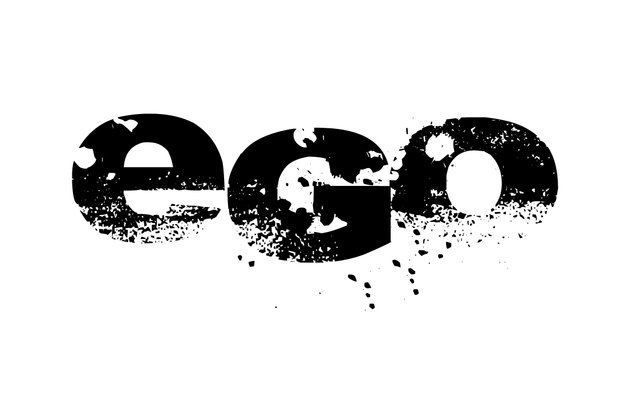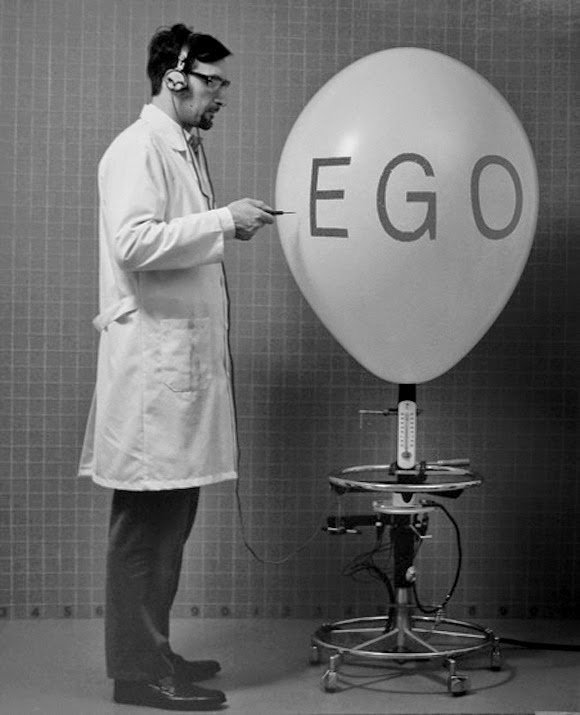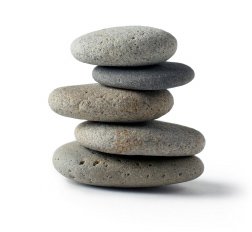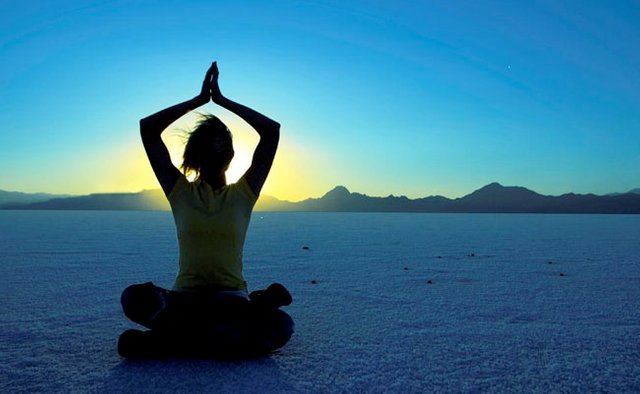Does Ego Complex Stagnate the Growth of Human Civilization?
I often contemplate what life would've been like if the human race developed different social norms and behavior.

Stagnation & Cognitive Dissonance
Here we are, a somewhat intelligible race, who has found itself stuck inside a perpetual state of learning. It's almost frightening to imagine how much further we will advance when we consider how far we have come in the last few centuries. And yet, it feels like in the last few decades we've slowly stagnated our growth, like a nostalgic child that can't let go of the past.
We accept things as truth and later find it hard to deny those truths. We ingrain a standard of living into our minds day by day, moment by moment, until we eventually find ourselves stuck inside a cage of beliefs. These same beliefs become introduced to you from the outside. Everything you see, everything you do, say or hear; all of it is influential. You become a product of experience.
Is it plausible then, if what I just said is truth, that society has found itself living within a complexity of egotism. An omnipotent complexity that has developed over the ages. Each one of us thinking that we're superior to others because of where we come from and what we know. Some kind of evolutionary pissing contest.

If that is the case, then why aren't we seeing it? Are we truly being censored by some group of shadow capitalists? Is what we think even relevant to ourselves, or, are we just regurgitating the words of the last person we witnessed and thought, "hey, they're smart, I might follow them".
The conclusion I find myself at is one that is more complex than any one of us is willing to admit. I feel that this is in fact the case. That we aren't living up to our potential because we're stagnating ourselves with beliefs and expectations. We keep setting unnecessary rules that restrict our growth.
Finding balance
It's like stereotypes. Stereotypes exist so that we can label our expectations of something or someone. When we hear a stereotype we immediately visualize our expectation of something and its role within our existence. We label things and paint them with a certain color, and then when we see a similar color we expect it to be the same. I'm sure you've heard the saying, "no two things are alike".
That's because of natural selection. No, not the Mussolini kind. I'm talking about the chemistry of cohesion. No two things are alike because everything is balancing against each other to become one.
As an example, imagine a rock pile at the beach. Gravity is helping the rocks to balance against each other, however none of the rocks are the same size. Each one is performing its role in that moment. They are ub perfect harmony with their existence and where they need to be; they have no need to push in opposite directions in that moment because they have found equilibrium. They are one.

Balancing life
The same example could be applied to life. In a perfect existence we would spend our days creating balance. Relationships, for example, should be balanced. Instead, we over indulge. We find something we like and then we abuse it. Our consumerist behavior is fueled by greed and that greed destroys our balance. The same greed motivates us to become something more than what we need to be.
Nobody needs to be anything but what they choose to be.
You can be good or bad but at the end of the day it's your decision that you have to live with, if you're making that decision without the right experience then you're almost destined to fail. Without preparation then it's almost impossible to progress.
We could be spending our days thriving for knowledge, instead we choose to stay within the boundaries of what already is. We glue labels all over our body and in turn add to our own egotistical complexity. Our character becomes a wash of mutual satisfaction and regret; satisfying ourselves no matter the consequence.
It's so easy to pick up a book that's completely out of your comfort zone and choose to add that to your repertoire, yet most instead choose to indulge in the fascist views of a culture poisoned by perpetual sin. When did we lose sight of what was right and wrong? Was there ever a right or wrong?

Historically stagnated
Throughout the history of human civilization, I'm not entirely convinced that there was ever a moment of intellectual peace. Before we had clothes we were most likely some type of lower mammal which would have hunted to survive. If that is indeed true then we can start to understand that our current complexity is some what of an evolutionary bi-product of a once barbaric existence.
Society has grown and grown, yet it stagnates its growth with barbaric decision making. It's as if we're choosing the struggle when we could be working together like a colony of ants to create a world that's heavenly. It's not hard to imagine Earth becoming the Heaven we grew up with in fairy tales.
I can't help but feel guilty when it comes to egotism. I know I have my own complex hindering my true self. I was raised to follow suit and show respect where it's due, all of which are incorruptible values, but I was also raised to follow social norms. Raised with conformity; conforming with stereotypes and social expectations. These standards shape me and in turn influence me in their own ways. It's hard to unravel and reprogram each layer of experience that is negative but I try. I feel that if I can tackle my own complexities then I can help others to do the same, and lead by example.
Maybe we are each destined to live within the guidelines of our own standards, and that it's up to each one of us to decipher which of those standards should be accepted wholeheartedly. Perhaps our egotism isn't a bad thing if it's harnessed through self critiquing and moral actuation.

Good points.
The ego = "I" = self. You can't exist without an ego. The issue is of positive or negative ego manifestations, positive or negative expressions of self, of you/I. There is no "ego death" because that is death of yourself and it's impossible because there is always an I-self-ego from birth to death. I refer to it as an ego-personality-identity construct, that is formed and conditioned from birth to death, but we can alter, affect and change who we are, I, me, self, ego, because it is malleable despite having certain rigidity.
So when you "try" to correct someone's comment from " According to me" into "according to my ego", you're just saying the same thing, but you think you're being "clever" and making a point, but you're not really. Undertanding this, I would say to do so is an error in comprehension, and to express that failure of understanding as an attempt to "correct" someone who is right, is a negative ego manifestation to try to make someone wrong when they are actually right, and then you are wrong. It's from a lack of understanding the meaning of the word ego, which is the self, I, you, me, etc. Etymology has a lot to teach us.
Egoism, egotism, egocentric are all qualities of self that can manifest. Ego is both positive and negative in potential manifesting qualities.
Egoism is like solipsism: 1) nothing exists outside of self, no truth; 2) if things do exist, if truth exists, then no way to know anything about it, no way to know any truth; 3) if truth exists, and can be known, then there's no way to communicate it to others. This is a self-deluded negative ego trap, a fixation on self. It's a focus on self, and can lead to exclusion of concern for others, a focus on egotism, too much "I' and not enough "you", which is another "I"-ness that isn't me. Leads to selfishness, self-centered.
Egotism i s"I" this, "I" that, too much focus on the self. Pretty much like above, but subtle differences. Leads to, again, self-conceit, selfishness, focus on "I" and not "you".
Egocentric is the same thing, having your center on yourself, which can be positive since we are all at the center of ourselves... duh right? But in a negative, the focal center is on "I" and exclusion of others. Selfishness, self-centered i.e. center = centric.
They are variations of words that essentially speak of the same meaning that can be slightly differentiated.
Take care. Peace. Upvoted.
What if we make an ISLAND of people who are aware of this, and send more egoic people in, one by one until they are also aware?
Then everyone outside of the island would perpetuate their ignorance further and those on the island would lose touch with the outside world.
There are many different theories of egoism. According to me, egoism and the ego are not the problem; the issue here is with egotism and egocentrism.
I think you mean, "according to my ego", they are not the problem. And I beg to differ. Egotism and egoism are one and the same. Egocentrism on the other hand is just part of the ego. Without including all aspects of ones ego you cannot begin to understand said ego. For example, when someone believes they know a person only to be shocked by something they do next. That demonstrates that although you may know just as much about that person as they know about themselves, you will never know the depth of the experiences they've perceived. It's same with those who experience egocentric bias and exclude parts of their experiences in order to satisfy the egotism.
I disagree completely with your definitions. But yes, that is according to my ego; The only distinct "me" there is.
I just wanted to say that there are many different theories of what egoism is and how it should or should not be applied. I'm likely to write about it in the future, but right now is not the time to discuss it.
I respect your difference in opinion and the fact you're willing to admit such.
I barely touched on egoism in this article, if anything I could've written it better. My goal here was to try tackle the complexity of egotism at its core, rather than disassembling it with theology, instead representing more of a personal view.
Peace.